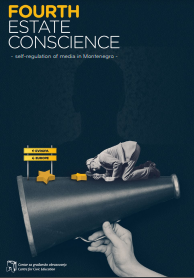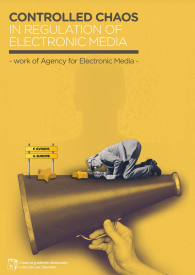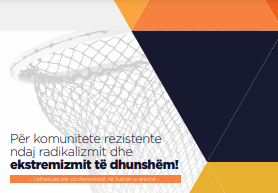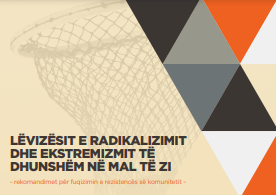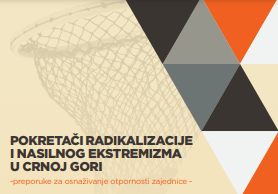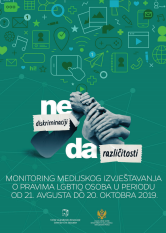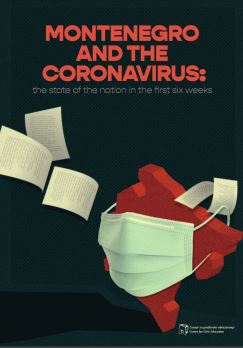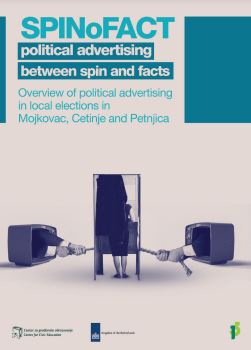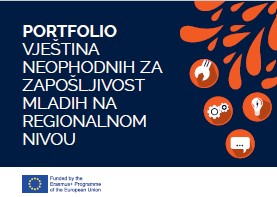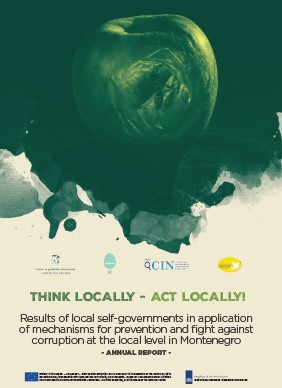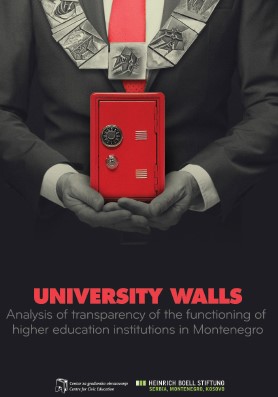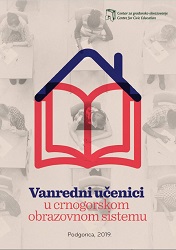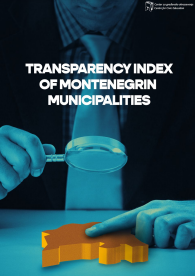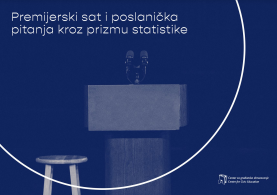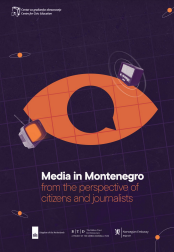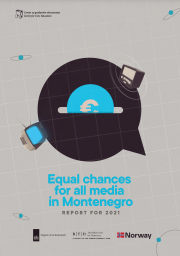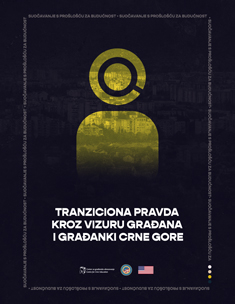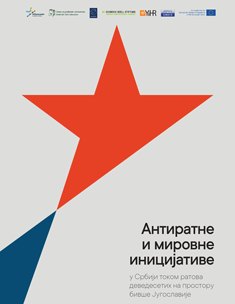SPINoFACT - Political advertising between spin and facts - Overview of political advertising in local elections in Mojkovac, Cetinje and Petnjica
Author(s): Damir Nikočević / Language(s): English
Keywords: media; politics; advertising; local elexctions; Mojkovac; Cetinje; Petnjica;
Political advertising is as any other advertising – based on good presentation of election offer and has persuasive character towards targeted public. Consequences of influencing the voters are visible, especially in the election campaign. Political decision represents a summary of individual decisions with collective consequences. We choose what is the most important for us by voting, with conviction it is also right for others. Therefore, elections are of also general importance and are subject of interweaving of interests and attention of party structures, business, media, many other social actors, but also citizens. Various subjects of political communication act in this field, and prof. PhD Miroljub Radojkovic from the Faculty of Political Sciences of University in Belgrade states the following: 1) Political establishment (government, opposition, parties, interest associations, administration organs); 2) Media (press, radio-broadcasting, digital media and media of civic selfexpression/journalism); 3) Outsiders (everyone who does not have access to decision-making arena) and social movements. On the waves of half-century of one-party system, large part of new-formed Montenegrin political structure has entered unprepared in multiparty system, insufficiently aware of importance of political competition for development of a society, with a surplus of political appetites, and shortage of democratic capacities. In the expansion of politics determined by foreign war factors – the first multiparty elections were organised. In time, historical and situational conditions have affected many political actors to start adopting technics of election and media presentation as per model of examples from developed democratic countries, while the election campaigns themselves started resembling more modern and more meaningful entireties. Party and media pluralism create assumptions also for greater effective participation of citizens. In contemporary society, which is characterised by new digital tools and technological achievements, role of media remains predominant for establishment of equal treatment and dialogue between various social actors. In the entire context, action of authorised institutions is of great importance, as well as of agencies and vocational associations, and the media themselves in providing objective information, contributing to transparency of the process and responsibility of all actors, and in evading situations in which amidst financial dependency they turn into noticeboard of election actors which occupy the space via advertisements and sometimes they also create news instead of journalists. Deep division of media community in Montenegro, also, has negative impact on quality of informing in election campaigns and often has diametrically different informing of media about one same event as a consequence. Project ‘SPINoFACT – Political advertising between spin and facts’, which part is this publication, has an objective to contribute to promotion of good practices and improvement of legislative framework when it comes to political advertising in media in Montenegro. Specific objective of the project is improvement of cooperation between media, relevant institutions, political parties and nongovernmental organisations, as well as to raise awareness of the public about importance of political advertising and more quality informing of citizens during election campaign. This pilot project relates to local elections in Mojkovac, Petnjica and Cetinje in November 20172, and was supported by the Embassy of the Kingdom of Netherlands. How much, in what manner and in which media have the election lists been advertising? How have media been reporting during election campaign? What does the legislative framework provide? What is the role of self-regulatory bodies? What is the role of media in election campaigns? How do media affect the election campaign? These are only some of the questions to which we attempted to respond through realisation of activities in this project, which included: analysis of legislative framework relating to political advertising, qualitative and quantitative monitoring of media during election campaign for local elections in Mojkovac, Cetinje, Petnjica, production, presentation and publishment of reports encompassing results of findings. Special part relates to raising awareness of the public on importance of political advertising and networking of interested parties, which was addressed through a series of infographics on social networks and on website of Centre for Civic Education (CCE), via which findings of research are additionally presented in a simplified and receptive manner.
More...
